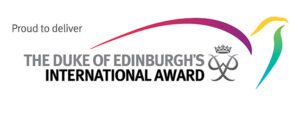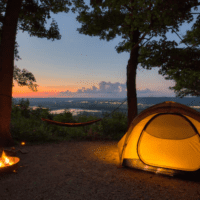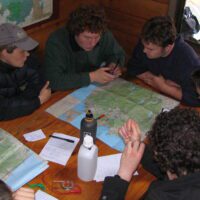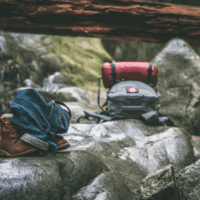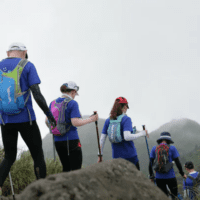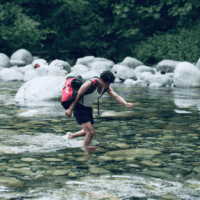Duke of Edinburgh’s Award
The Duke of Edinburgh’s Award, also known as the DofE Award, is a youth development program that was founded in 1956 by Prince Philip, Duke of Edinburgh. The program is open to young people aged between 14 and 24, and is designed to encourage personal development and self-discovery through a series of challenging activities.
The DofE Award is made up of four sections: volunteering, physical, skills, and expedition. Participants must complete a set number of hours in each section, and also undertake a final residential project at Gold level. The program is flexible and participants can choose their own activities within each section, allowing them to tailor the program to their own interests and abilities.
The DofE Award is recognized internationally and is highly regarded by employers and educational institutions. It is currently run in over 140 countries worldwide and has helped millions of young people to develop essential life skills, increase their confidence, and make a positive impact on their communities.
The DofE Award has also been credited with encouraging young people to get involved in outdoor activities and fostering a love of the natural environment. It has also been praised for promoting teamwork, leadership, and resilience, and for helping young people to develop a sense of purpose and direction in their lives.
The DofE Award is made up of four sections, each of which requires a set number of hours to be completed:
DofE Award Sections
Volunteering Service section
Participants must undertake a volunteering activity that benefits their community. This could include working with a charity, helping out at a local school or hospital, or assisting with environmental conservation efforts.
Physical Recreation section
Participants must engage in a physical activity to improve their fitness and health. This could include team sports, martial arts, dance, or individual pursuits like running, swimming or cycling.
Skills section
Participants must develop a new skill or improve an existing one. This could be anything from learning a musical instrument, mastering a foreign language, developing cooking skills, or learning to cook.
Adventurous Journey section
Participants must plan, prepare for, and complete an expedition. This usually involves a team of young people hiking, camping, and navigating through a designated wilderness area.
Gold Residential Project
In addition to completing the above four sections, participants must also undertake a residential project, which involves living and working with others in an unfamiliar environment for at least five days.
Online Record Book (ORB)
Upload your PPS completion certificate into the ORB
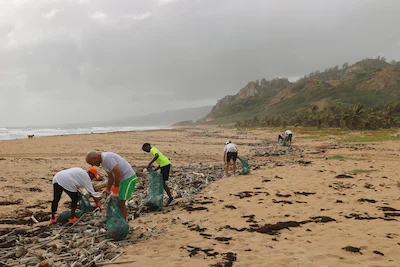
Volunteering
The Volunteering Service section of the Award aims to encourage participants to get involved in their local communities, develop new skills, and make a positive contribution to society.
Choosing a volunteering opportunity: Participants are free to choose any volunteering opportunity they are interested in, as long as it meets the DofE program’s requirements. The opportunity should involve working with people, a community or an organization to make a positive impact.
Volunteering: Participants should volunteer regularly and document their activities. This could involve keeping a diary or logbook, taking photographs or videos, or creating a portfolio of their work.

Physical
The physical Recreation section aims to encourage participants to improve their physical fitness, develop new skills and adopt a healthy lifestyle.
Choosing a physical activity: Participants are free to choose any physical activity they are interested in, as long as it meets the DofE program’s requirements. The activity should challenge the participant and require regular practice.
Setting goals: Participants should set clear goals for what they want to achieve during the physical section. These goals should be challenging but achievable within the time frame of the section.
Planning: Participants should develop a plan for how they will achieve their goals. This plan should include regular training sessions and milestones to measure progress.
Reviewing: Participants should regularly review their progress and evaluate their performance. This could involve seeking feedback from a coach or trainer, reflecting on their own performance, or setting new goals. Participants should keep a record of their progress and submit evidence of their achievements to their DofE Award Leader for assessment.

Skills
The skill section encourages participants to develop a new skill or improve an existing one over a period of time. The aim of the skill section is to encourage personal development and to broaden participants’ interests and abilities.
Choosing a skill: Participants are free to choose any skill they are interested in, as long as it meets the DofE program’s requirements. The skill must be a new activity or a significant development of an existing skill.
Setting goals: Participants should set clear goals for what they want to achieve during the skill section. These goals should be challenging, but achievable within the time frame of the section.
Practicing: Participants should practice their chosen skill regularly and document their progress. This could involve keeping a diary or logbook, taking photographs or videos, or creating a portfolio of their work.
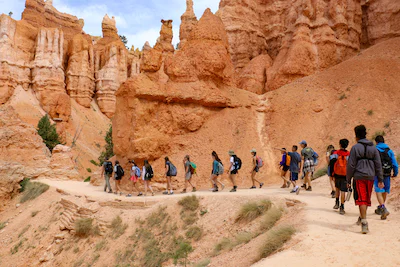
Adventurous Journey
The aim of the Adventurous Journey section is to develop key skills such as team working, communication, and problem-solving, as well as physical fitness, independence, and self-reliance. The journey also provides an opportunity for participants to explore and appreciate the natural environment and to develop an understanding of the challenges it poses.
Participants are encouraged to choose a mode of transportation (non-powered) that is appropriate to the terrain and environment they will be travelling through. The most common modes of transport include:
-
Hiking
-
Canoeing
-
Cycling
-
Horseback riding
The Adventurous Journey section is split into three parts, Training, Practice expedition and the Qualifying journey.
Training sets the fundamental skills that are required to undertake a practice journey. Training topics should include; clothing & equipment, environmental care, leadership, map & compass, campcraft & water safety.
Practice journey is designed to allow participants to put into practice their training to further develop their skills and knowledge during a journey. The practice journey should be simlar in nature to the qualifying expedition.
Qualifying Journey is then undertaken to test participants skills. Participants must plan and undertake a journey that meets specific criteria, including the distance covered, the type of terrain, and the duration of the journey. The expedition must be undertaken in a group, with participants taking turns to lead, navigate and to manage the logistics of the journey. Participants must also carry all of their own equipment and supplies and must camp overnight in a designated wilderness areas.
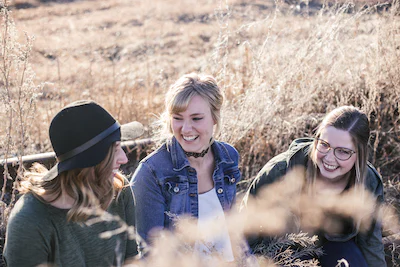
Residental
In addition to completing the above four sections, participants must also undertake a residential project, which involves living and working with others in an unfamiliar environment for at least five days.
The Residential Project section is a unique opportunity for participants to broaden their horizons, develop new skills and make new friends. It aims to encourage participants to step out of their comfort zone and challenge themselves by taking part in a shared activity or experience.
Choosing a residential opportunity: Participants are free to choose any residential opportunity they are interested in, as long as it meets the DofE program’s requirements. The opportunity should involve a shared experience or activity with people from different backgrounds and may include outdoor activities, cultural experiences, or community service.
Participating: Participants should actively participate in the residential opportunity, engage with others, and contribute to the group’s success. This may involve learning new skills, overcoming challenges, and developing resilience.




